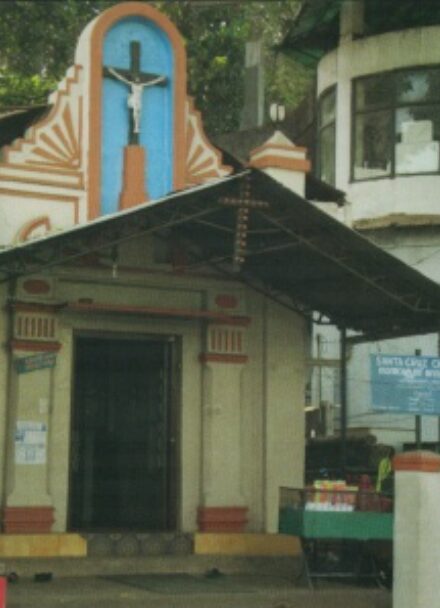Kurushupali in Kozhikode (also known as Kurishupalli or St. George’s Shrine) is a unique religious site where people from different faiths come together to pray. This shrine stands out in Calicut for its inclusive nature, welcoming Christians, Hindus, Muslims, and Jews, making it a symbol of the syncretic culture of Kerala.
Location and Physical Features
Kurushupali is known for its distinctive black granite stone, which has a cross etched onto it. The cross is not just a traditional Christian symbol but one with equal arms, similar to the St. George’s cross seen on crusader tunics. The black stone is often touched or prayed upon by devotees, and there’s a colored statue of St. George nearby, protected behind glass.
Legends and Traditions
The legend associated with Kurushupali is tied to St. George, the dragon-slaying knight. The story tells of St. George saving a city plagued by a dragon (often interpreted as a giant crocodile). After St. George protects the city and defeats the beast, the citizens convert to Christianity in gratitude, a narrative celebrated both at this shrine and in churches worldwide.
Community Significance
One of the most remarkable aspects of Kurushupali is its popularity among students, particularly during exam times. The shrine becomes extremely busy with young people lighting candles and seeking blessings, reflecting how, for many in Kozhikode, faith and hope transcend religious boundaries.
Festivals and Celebrations
During the annual “thirunal” (feast), Kurushupali is decorated with colorful lights, drawing large crowds from across the city. The event brings together people from various communities, further highlighting the site’s role as a center of unity and communal harmony.
Kurushupali as a Symbol of Kozhikode
Kurushupali represents more than a place of worship; it is a microcosm of the inclusive spirit of Kozhikode. The city’s ability to bring together different communities is mirrored in sites like Kurushupali, making it both a spiritual and cultural landmark of the region.
Kurushupali stands as a testament to Kozhikode’s history of communal peace and its blend of traditions, attracting people from all walks of life seeking blessings, comfort, or simply participating in a shared tradition.

